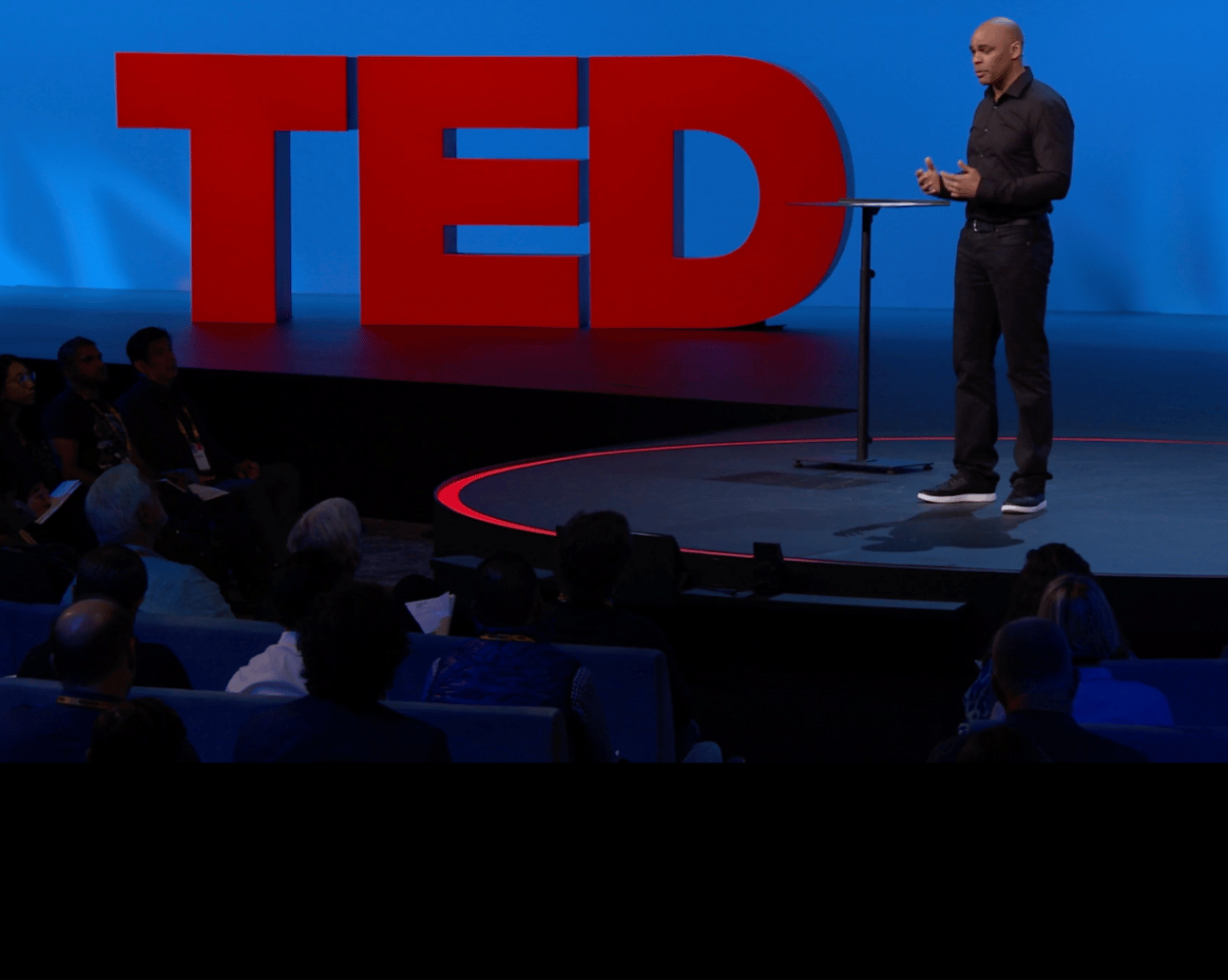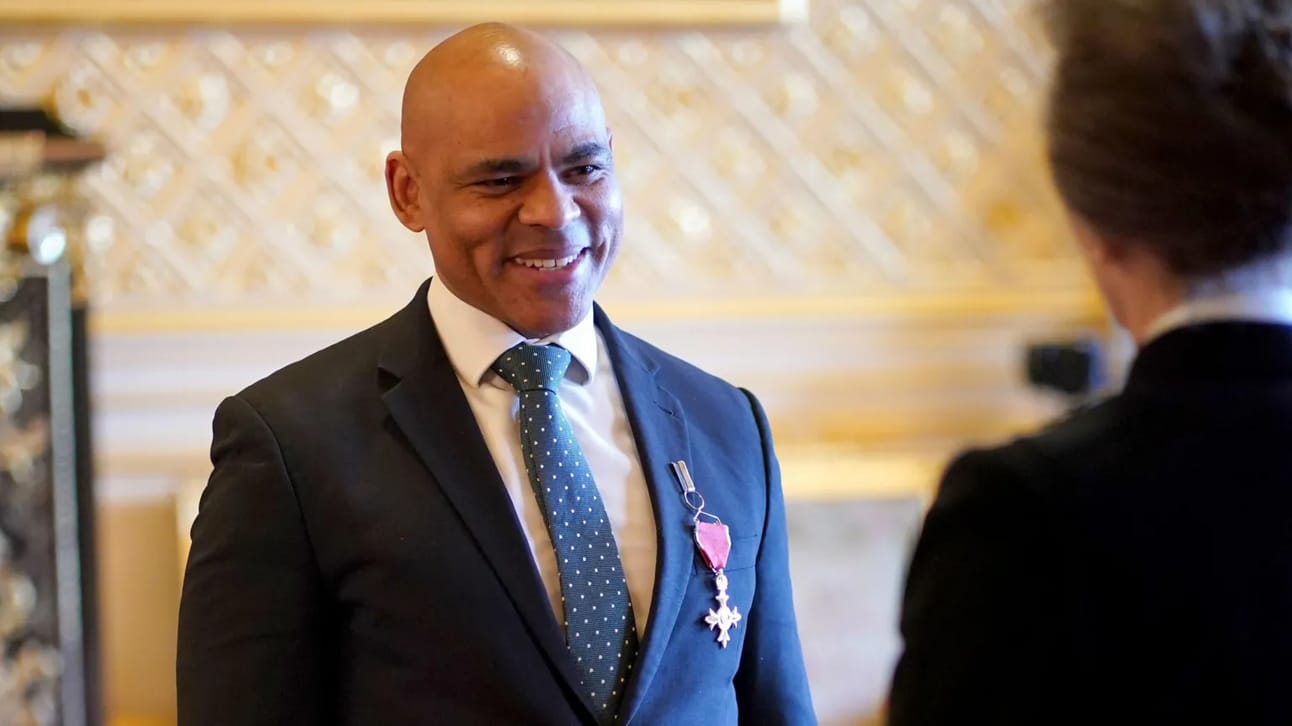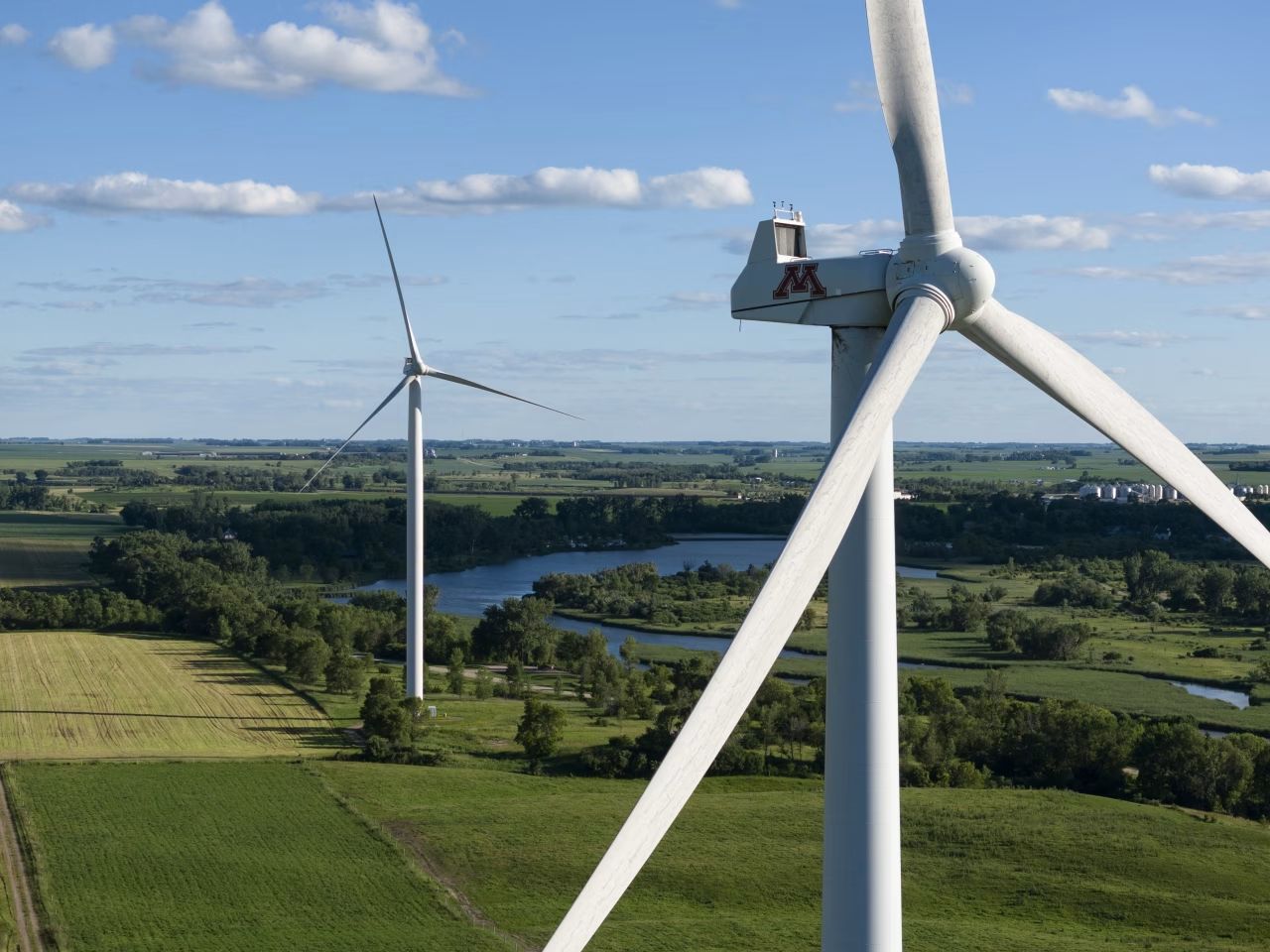- Supercool
- Posts
- 🌐 The Mayor Who Cut Carbon, Cut Bills, and Cut a Billion-Pound Deal
🌐 The Mayor Who Cut Carbon, Cut Bills, and Cut a Billion-Pound Deal
As mayor of Bristol, Marvin Rees created one of the most ambitious public-private climate deals in the world. Now, he’s taking the model global.
This week marks the start of a new series from Supercool, in partnership with the Penn Institute for Urban Research (IUR) at the University of Pennsylvania (my alma mater—Go Quakers!), spotlighting mayors driving global urban climate finance.
Penn IUR is the Secretariat for the UN’s Sustainable Development Solutions Network’s (SDSN) Global Commission for SDG Finance, an initiative that assembles the brightest minds to solve the single greatest barrier to decarbonizing urban life—money.
We’ll explore how Mayors and their cities are securing capital, structuring deals, and building new coalitions to cut carbon and raise quality of life—on time and on budget.
First up: Lord Rees of Easton, aka Marvin Rees, former mayor of Bristol, England—who insisted I call him Marvin.
He Didn’t Set Out to Be a Climate Leader. Then He Wrote the Playbook.
Marvin Rees didn’t grow up dreaming of becoming mayor—or of climate leadership.
He grew up in poverty in 1980s Bristol, the mixed-race son of a white mother, navigating a society that often made both of them feel unwelcome.
“I got chased down the streets by grown men calling me the ‘N-word’ as a kid,” he says. “If I was thin-skinned, I wouldn’t have made it.”
What he did grow up with was a sharp sense of injustice and the drive to fix it. First through journalism. Then politics. In 2016, he became the first Black mayor of a major European city.
What followed was one of the most ambitious climate transformation efforts of any city in the world.
Lower emissions. Lower bills. £1 billion in investment. And a model the world is now racing to emulate.
On the Front Lines of the Climate Crisis—Without a Seat at the Table
Cities are where the climate challenge gets real.
They account for over 70% of global carbon emissions and use 75% of global energy. Over half the world’s population lives in cities, a number projected to rise to two-thirds by 2050.
Yet, when global climate policies are negotiated, cities are mostly shut out of the room.
“Most migrants leave cities, transition through cities, settle in cities,” Marvin says. “They weren’t even consulted on the UN's Global Compact on Migration. It’s the same on climate. Cities are the ones doing the work, but not shaping the system.”
That’s the problem he set out to solve.
Financing a Citywide Climate Plan When Cash is Tight
The technology to decarbonize cities already exists: heat pumps, solar panels, district heating systems, energy efficiency retrofits, and EV infrastructure. What’s missing is finance and the capacity to structure bankable, investment-worthy deals.
After years of austerity in the UK, Marvin saw that firsthand.
“No one comes down to City Hall with signs saying ‘Save Our Lawyers’ or ‘Save Our Accountants.’ But those are the people who make big deals happen,” he says. “We protected frontline services, but we gutted the back office — and now we’re asking cities to do the heavy lifting on climate with no planners, no finance directors, no capacity.”
So Rees did what national governments couldn’t or wouldn’t: he built a workaround.
The Billion-Pound Leap
Bristol City Leap is a first-of-its-kind, 20-year public-private partnership designed to decarbonize the city at scale.
The model bundles the city’s public assets—29,000 social housing units, heat networks, and public buildings—and gives private sector partners Ameresco UK and Vattenfall long-term certainty to invest in and deliver the intended outcomes.
The result: over £1 billion in investment committed for solar, heat pumps, insulation, EV charging, and more, with local hiring requirements baked in.
The impact already shows.
“I put my heating on for one hour in the morning now,” one Bristol resident told Marvin after receiving home energy upgrades. “That’s it. My house is so efficient.”
But the goal is not just carbon reduction; it’s real economic relief in the middle of a cost-of-living crisis.
And it’s unlocking a wave of jobs and training opportunities as local colleges begin up-skilling workers for heat pump installation and energy efficiency careers.
Recognition has followed. Last year, Bristol City Leap received the Award of Distinction for Public-Private Collaboration from the Global Partnership, an initiative led by the World Economic Forum and UN-Habitat.
The Leadership Style: Smart Teams, Long Timeframes
Marvin credits much of Bristol City Leap’s success to his team and to knowing how to get out of the way.
“One of the qualities I brought as mayor was being willing to have people around me who were smarter than me and never ask them to be less than they are,” he says.
He also gave them political cover to take risks. “We created the space for innovation. I took the political hits so they could do the work.”
The long-term nature of the City Leap deal — 20 years — was also essential. It gave private companies the confidence to invest. It gave schools time to align the curriculum with future workforce needs. And it gave residents a sense that the city wasn’t lurching from pilot to pilot, but building something durable.
How Is Your City Tackling the Climate Crisis?
Marvin’s 2022 TED Talk in Vancouver challenged the global climate finance system and argued for putting cities at its center. It drew 1.7 million views and praise from the international community.

Marvin Rees speaking at TED in Vancouver in 2022.
Back home, though, local media criticized him for the cost of the trip.
“I wasn’t there to give a talk on climate change,” he says. “I was there to say cities need to be at the table. And I was at the table. That’s the point.”
He didn’t back down. He doubled down—elevating Bristol on the global stage and making the case that the city’s approach to climate and equity is working.
The Next Play: A Global Plan for 300 Cities by COP30
Marvin stepped down in 2024 and was elevated to the House of Lords in early 2025 as Lord Rees of Easton.

Marvin will now be known as Lord Rees of Easton.
Today, as a member of the SDSN Global Commission on Urban SDG Finance, he’s working to make climate finance easier for every city by replicating Bristol’s success through shared playbooks, streamlined deal structures, and faster access to capital.
The roadmap:
✅ By London Climate Week – 20 UK cities aligned with financial partners
✅ By New York Climate Week – 50 U.S. cities structuring major climate deals
✅ By COP30 in Brazil – 300 cities globally with real, funded decarbonization plans
“COP has been good at making declarations,” Rees says. “But it hasn’t been good at delivery. If national governments can’t get it done, cities will.”
Supercool Takeaway
The technology is here. The urgency is obvious.
What’s missing for most cities? Capital and the ability to structure investment-ready deals.
Marvin Rees solved for both.
He bundled housing, heat networks, and public buildings into a long-term investment platform and secured over £1 billion in private funding.
Now he’s working to build the financial and institutional frameworks so hundreds of cities can follow.
Listen to this podcast episode on Apple, Spotify, YouTube, and all other platforms.

↓
This Week’s Supercool Sponsor

The Garbage Bag Gets an Upgrade.
You’ll take out the trash more than 8,000 times in your life. Might as well make it count and look good, too. Rubbish makes compostable, non-toxic, PFAS-free garbage bags with a sense of humor. (Yes, there’s a new saying on every bag.) They remind you when you’re almost out, donate 10% of their bags to charity, and design for the circular economy.
↓
Stat of the Week: $86 Billion
That’s the amount cities around the world sought in 2024 to fund next-generation climate projects. Investment needs jumped 23%—a surge that underscores a widening funding gap as cities scramble to access climate finance.
Quote of the Week:
“Cities don’t need more declarations. They need capacity and confidence to bring forward bankable climate projects at scale. We’ve got the technology to solve 80% of the climate problem. What we don’t have are the financial innovations to get the technology rolled out.”
— Marvin Rees, former Mayor of Bristol, England
↓
From Morris to Megacities: How Cities Are Scaling Climate Solutions Together
At Supercool, we cover what’s working in business and policy to rapidly scale climate solutions that cut carbon, grow profits, and improve modern life. That often means new technologies, strategies, and business models.
But just as important are the networks that rapidly move ideas.
What fascinates us is how mayors and their teams are learning from peers around the globe at the speed of conversation, then deploying the best of those climate solutions back home.
And it’s not just big cities. It applies at every scale.
Morris, Minnesota: The Morris Way
In Morris, Minnesota (pop. 5,206), climate wasn’t the goal—self-reliance was. But that mindset powered a transformation: wind turbines making green fertilizer, solar panels shading cows, compost-for-profit, EV buses, LED-lit streets, and a solar-powered liquor store that sparked copycats statewide.
The turning point? A visit to Saerbeck, Germany, where residents run their own 100% renewable energy grid. The trip was organized by Climate Smart Municipalities, a University of Minnesota program that pairs local towns with German counterparts to exchange ideas and solutions.
Inspired, Morris launched the “Morris Model”—a pragmatic plan turning economic pain points into sustainable infrastructure. It now aims to cut emissions 80% by 2030—and is helping rural communities across Minnesota do the same.

Wind turbines in Morris, MN.
13,735 Cities: The Global Covenant of Mayors for Climate & Energy
That same spirit of practical cooperation now connects thousands of cities worldwide through the Global Covenant of Mayors for Climate & Energy—a coalition committed to long-term, local climate action.
To go faster, the Covenant launched CHAMP—the Coalition for High Ambition Multilevel Partnerships. CHAMP helps countries hit their Paris goals by partnering with local—level governments to plan, fund, and build climate solutions.
As CHAMP’s Special Envoy, and former mayor of Vancouver, Gregor Robertson told Supercool: “Cities are ready. They just need the capital, the tools, and each other.”
97 Megacities: C40 Convenes The World’s Largest Cities
At the largest scale, C40 Cities connects 97 of the world’s biggest metropolises to accelerate bold, proven climate solutions—like London’s congestion pricing and Los Angeles’ building electrification mandates. By sharing strategies and scaling success across borders, these cities are showing what’s possible when urban leaders collaborate with ambition and urgency.
David Miller, former mayor of Toronto and now C40’s Managing Director of the Center for City Climate Policy and Economy, guides much of this work. As he told Supercool: “Climate action doesn’t just cut carbon — it makes cities better for everyone.”
When it comes to decarbonizing civilization, cities don’t have to go it alone. The key to speed is ensuring they go together.
↓
Not yet subscribed to Supercool?
Click the button below for weekly updates on real-world climate solutions that cut carbon, boost the bottom line, and improve modern life.
🌐